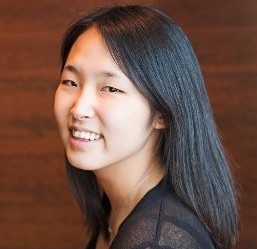Why does applying to university feel so burdensome for students?
Why do students often find the university application process so oppressive? Psychology of the self provides some insight

Sponsored by
University applications place a great weight on students. This is a statement that many college counsellors are likely to agree with.
But why exactly does the university application feel oppressively heavy so often?
The workload of the application might first come to mind as the reason. Certainly, having to write one essay after another and research yet another university’s minimum requirements is a tiring process. However, that is likely not the main reason why university applications feel so burdensome for students.
I believe that the main pressure of university applications comes not from the workload, but rather from the psychology of the self.
Self-discrepancy theory: an introduction
Self-discrepancy theory is an interesting framework that shines light on the different versions of ourselves (or self-representations). Think about how we represent ourselves in our mind.
For instance, there’s the version of who we want to be – this is the “ideal self”, driven by hopes, aspirations and wishes. Then there’s the version of who we feel we should be – this is the “ought self”, driven by duty and obligation. And finally, there’s the version of how we currently see ourselves – the “actual self”.
When we realise that there is a discrepancy between the current self (actual self) and the version we want to be (ideal self) or the version we should be (ought self), we experience distress.
This distress can look different depending on the type of discrepancy. The discrepancy felt when we realise that we are not who we want to be (between the actual self and the ideal self) results in disappointment and dissatisfaction. The discrepancy felt when we realise that we are not who we should be (between the actual self and the ought self) leads to guilt and anxiety.
Interestingly, the discrepancy felt when we realise that our hopes may be different from our duties (between the ideal self and the ought self) can also lead to internal confusion and struggle.
Self-discrepancy theory in university applications
How does this theory help us to understand students’ distress when applying to university?
The versions of who we aspire to be in the final year of high school are very clearly defined by a universally expected measure: the university offer from a “good school”. Whatever a “good” university looks like to you or your community, getting an offer from a respected and acknowledged university in the final year of high school is synonymous with the ideal self and the ought self.
Receiving an offer from and attending the university that you like and want to go to represents the ideal self.
Receiving an offer from and attending the university that you or your parents and community think you should go to represents the ought self.
Sometimes the university you personally like and the university you feel you should go to overlap – at other times, they may not. But regardless, the university offer is the personally accepted and societally acknowledged marker of accomplishment for the graduating high school student.
And the discrepancy you feel when you compare your desired future version – the successful high school graduate with offers from sought-after schools (ie, ideal and ought selves) – with the present version – the high school student without any offers yet (ie, the actual self) – can feel daunting.
These discrepancies either take the form of disappointment and dissatisfaction, or guilt and anxiety. These feelings are all too real, especially in the face of the first rejection letters, which cement the anticipated discrepancies in concrete realities.
How can college counsellors help students alleviate self-discrepancies?
Here, I will start referring to the universities that students want to go to as “ideal university”, and the universities that they think they should go to as “ought university”.
1. Show students what is expected to attain ‘ideal university’ and ‘ought university’ – but also manage expectations
Our job is to help students with their goals, even if they are lofty. Our responsibility is to guide our students through the application processes and navigate these strategically.
However, our job is also to manage expectations with goals that are too lofty, so that students receive some offers at the end of the school year. Showing them how to put together an application is important – but showing them the statistics of who gets into where is equally important. Balancing the two varies on a case-by-case basis, after we’ve assessed whether their ideal and ought universities are actually attainable or not.
2. Understand the rationale behind ideal-self university and ought-self university – and find a plan B
The ideal university and the ought university do not emerge from a vacuum. Behind the choice for the ideal university may be certain values and preferences. The ought university may be chosen because it is linked to the idea of a stable future and job security.
Because the underlying reasons for these ideal and ought universities are applicable to more than one institution, you can help students identify multiple universities that meet these criteria – not just the ones the student initially had in mind.
Try asking: “What are other ideal universities that meet your values? Other universities that are tied with job security?” In other words, it can be helpful to show students that there can be not just one, but multiple “ideal universities” and “ought universities”.
3. Mobilise community support to show other options
Demonstrating that there is a variety of ideal and ought universities out there may take more than just your own effort. You can enlist the support of subject teachers or other staff who have built rapport with the student and also know about universities. If the student hears the same thing from multiple members of staff whom they trust, it may help them to see your point.
Mobilising community support can include the parent community as well. Parents may have inherited ingrained cultural definitions of what ideal and ought universities are, which are admittedly very difficult to change. Your job is not necessarily to shape the larger cultural milieu, but rather to help your students and their parents extend their horizons to include realistic options, one conversation and one workshop at a time.
4. Challenge perfectionism and practise self-compassion
The reason for pursuing ideal and ought universities may be perfectionism or perhaps not fully accepting the self at the current time point.
The promise of future association with shining institutions may feel like a way to find that sought-after boost of self-esteem and self-confidence. However, associating the self with extrinsic factors is not necessarily the key for cultivating true self-acceptance.
We can help students reach their future goals, but we should also remind them that they are already enough as they are. The following tools may help: practising self-compassion, challenging perfectionism and building self-worth.
5. Be there for them at every stage of the application journey
As college counsellors, it is our job to support students through every step of the application process – including receiving a rejection letter.
The crush of discrepancy between the ideal and the actual, the ought and the actual, is difficult, but you can help to alleviate that. Telling students that you still believe in them and that there are always plan Bs, and checking in on them periodically, can help them cope with the distress of rejections.
Most importantly, as their college counsellor, you can remind them that they are not defined by their rejections – or even their acceptances, for that matter.
Looking towards the future to define our present selves, no matter how alluring that may be, can too easily weigh down on us and take us away from truly accepting our present version. So we must help our students see (and remind ourselves) that they are already enough – no matter the ideal or the ought — in their actual self, just as they are, just as we are.




